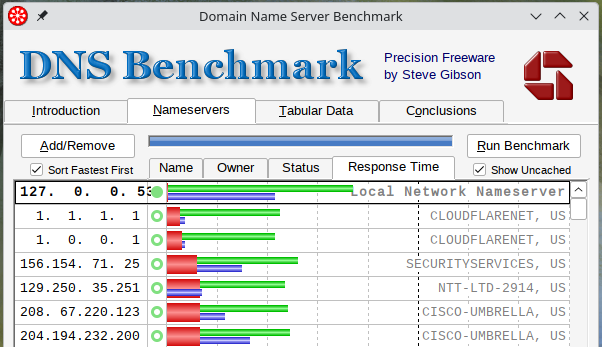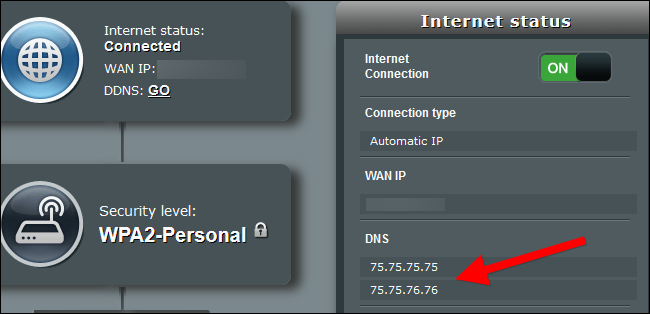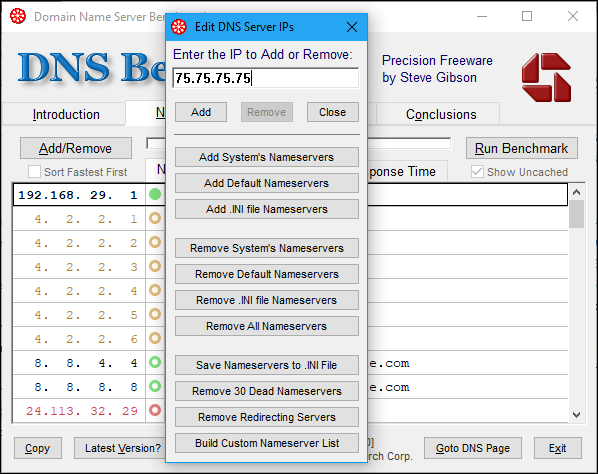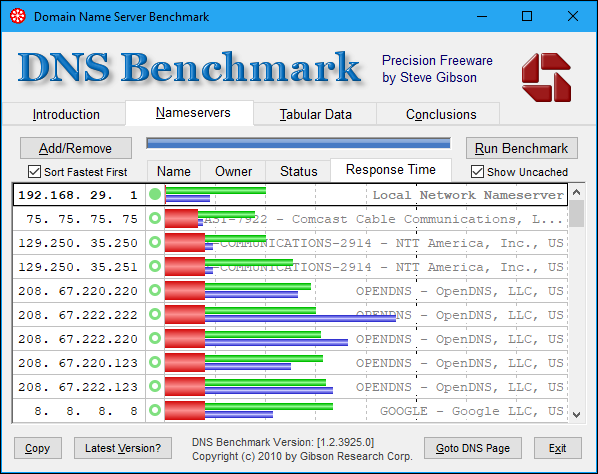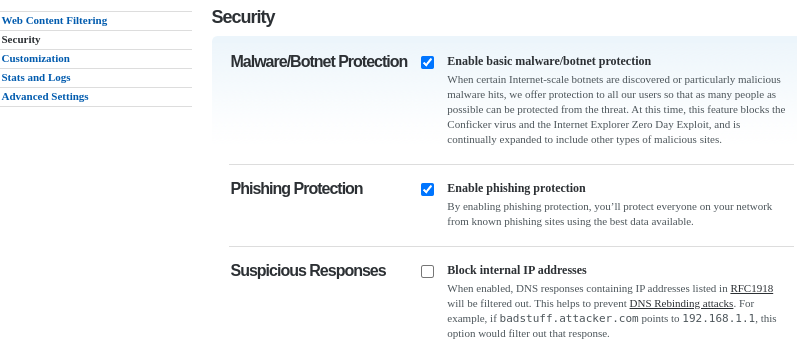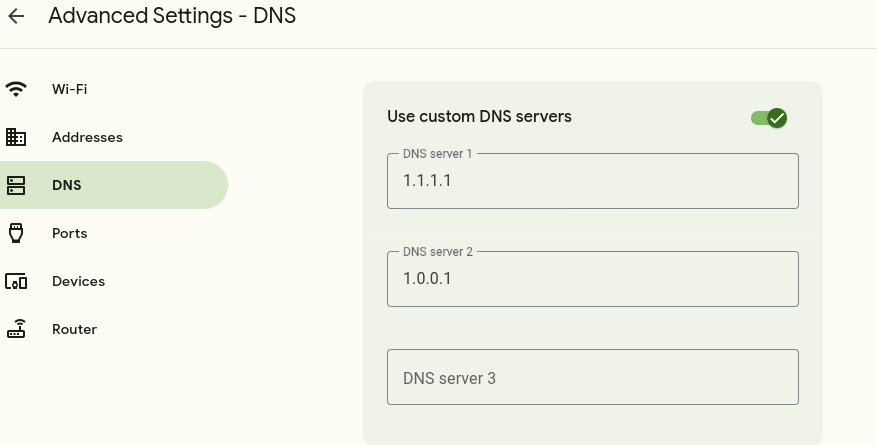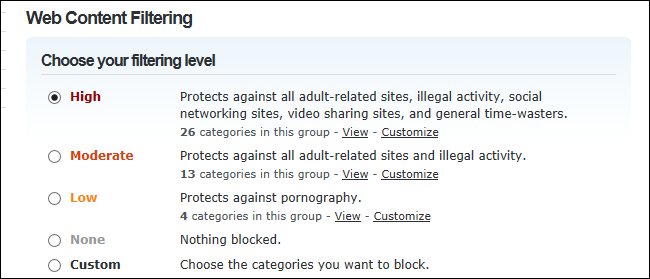Your internet service provider offers its own DNS servers, which help you turn websites like www.howtogeek.com into their respective IP addresses. Your devices use those by default, but you can set your own preferred DNS servers for a bit of improved speed.
Many DNS servers will also block malware, pornography, and other types of websites, if you want them to. We’ll talk about all your options in this article.
If You’re Looking For Speed, Run a Benchmark
If you’re looking for something faster than your ISP’s DNS servers, we recommend you run a DNS benchmark to find what’s best for your connection. The fastest DNS server will depend on your geographical location and internet service provider, so we really can’t recommend one fastest DNS provider for everyone.
Many DNS providers are focused on speed, and that’s their big selling point. But only running a benchmark will tell you which is fastest for you.
The easiest approach is simply to check a DNS rating website like DNSPerf. It’s a constantly updated database of DNS provideras and how they perform. Be sure to select your region to make sure the results are as accurate for you as possible.
However, if you want to make doubly sure you’ve selected the fastest DNS server in your area, there’s no better place to test than on your device. We recommend running Gibson Research Corporation’s free DNS Benchmark tool if you’re looking for the fastest DNS server on Windows or, using Wine, on Mac or Linux. (Mac users could have once used Namebench, but this project has been abandoned and we’ve heard it doesn’t work properly on the latest versions of macOS.)
Just download DNS Benchmark, launch it (no installation required), select the “Nameservers” tab, and click “Run Benchmark”. It’ll benchmark the top 72 DNS servers. After it’s done, it will even offer to benchmark nearly 5,000 publicly available DNS servers in the world and find the best 50 for your connection. This will take longer, of course. For the most accurate results possible, ensure the DNS Benchmark tool is the only thing using your internet connection during the tests (so turn off Netflix streaming, online games, or other downloads that might be using your internet).
For example, in the benchmark we ran on one connection, we saw that the fastest third-party DNS server providers included Cloudflare, NTT, and Cisco.
There’s one issue with this tool. There’s a good chance your Internet service provider’s DNS servers may be the fastest for your connection, because they’re located physically near you. However, DNS Benchmark doesn’t test your ISP’s DNS servers.
In the screenshot above, for example, it actually says our router—that’s the “Local Network Namesaver” is the fastest DNS server. That’s because it’s physically present on our local network and can immediately return cached results it remembers. However, your router will be using your ISP’s DNS servers by default, so this test didn’t actually benchmark how your ISP’s DNS servers compare to these third-party DNS servers.
To test this, you need to sign into your router’s web interface and locate the addresses of your ISP’s DNS servers. Every router is a little different, but we found this under “Internet status” on our ASUS router.
In DNS Benchmark, you can then click the Nameservers tab, click the “Add/Remove” button. Type the IP address of the first DNS server and click “Add” to add it to the list. You can then type the address of the second DNS server and click “Add”, too.
Once you have, click “Run Benchmark” to run the benchmark with your ISP’s DNS servers. We found that Comcast’s servers were the fastest ones for our Comcast connection, which isn’t surprising.
Even if your ISP’s servers are the fastest, however, you may still want to switch to another DNS server that provides malware filtering, parental controls, and other features. It helps to know how comparatively fast the other options are.
If You’re Looking for a Fast DNS Server
Some DNS servers don’t offer a lot of features, and just focus on providing fast, speedy, accurate results.
Google Public DNS was created by Google to provide a speedy, secure alternate DNS server. It provides raw, unfiltered results. Google promises it won’t correlate any usage data with any personal information you’ve provided to other Google services.
OpenDNS Home is configurable. So, although OpenDNS offers malware protection and other web filtering features, you can create a free account and customize the exact filtering that will take place for your connection. If OpenDNS is fast for you, you can use it with or without the filtering. Unfortunately, OpenDNS does log your IP address, DNS queries, and other information, so it’s less than private.
Cloudflare is very fast in our experience and also secure. By default, it doesn’t do any filtering or blocking, but you can get that too by configuring before changing your DNS server. For more details and a full list of recommendations, check out our guide to choosing a secure DNS server.
If You’re Looking For Parental Controls or Malware Protection
If you’re looking for a DNS server that provides configurable parental controls, we recommend OpenDNS Home. You can create a free account and configure exactly how it works on your connection, setting up malware blocking, parental controls with more granular settings than you’ll find on other services. You can choose which types of sites you want to block and even set a custom list of web domains that should be blocked or allowed. Check out our guide to configuring OpenDNS for more.
Cloudflare also offers a DNS service called “1.1.1.1 for Families” which lets you filter for malware or both malware and adult content. Like we said, Cloudflare is a great option in terms of privacy, security, and speed. To get started, check out Cloudflare’s guide to enabling family filtering.
While there are a few DNS servers that should be fast for nearly everyone, like Google Public DNS, OpenDNS, and Cloudflare, other DNS servers may surge ahead on some connections. But, before choosing another DNS server that looks fast in your benchmarks, you may also want to check its privacy policy and check that it doesn’t sell your data or do anything else you’re uncomfortable with.


